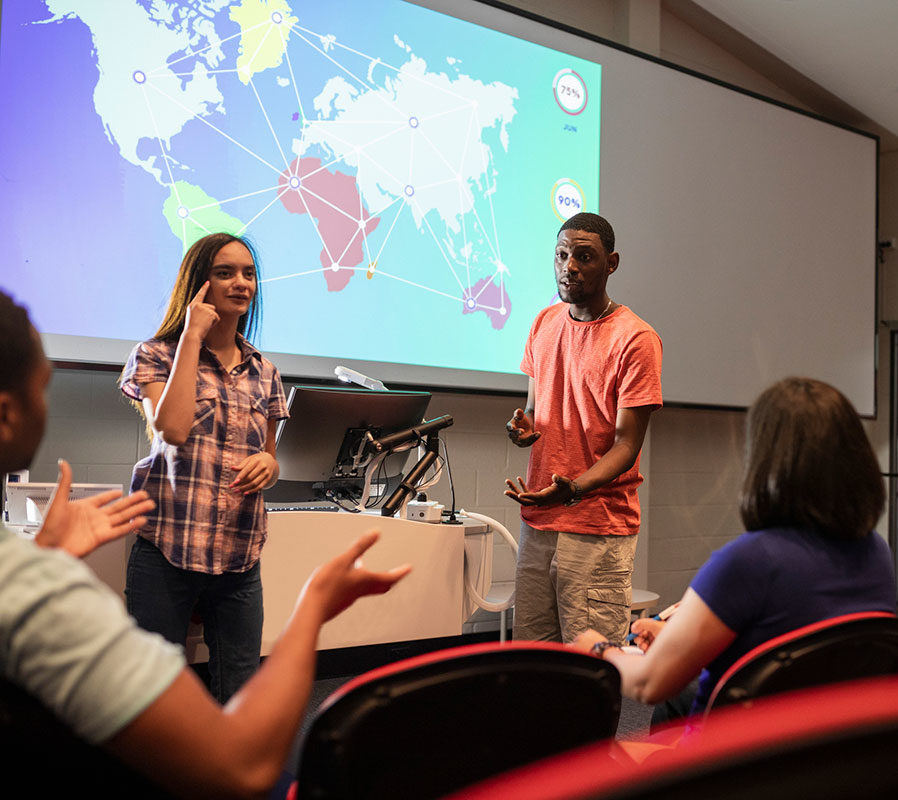Introduction
Accessibility Services (AS) advocates for students with disabilities by coordinating academic accommodations and services. It is important to note that while educators may do their best to ensure their courses are accessible, individual accommodations for students can still be required.
This article includes information regarding the Letter of Accommodation (LOA); in particular, the process, student and faculty responsibilities, and suggestions on how to respond to LOA requests. Please note that the information here is specific to the policies and procedures at Niagara College.
Accommodations
Academic accommodations are in place in higher education to address barriers preventing equitable access to learning for disabled students. Ideally, academic accommodations provide opportunities for students with disabilities to fully participate in their academic experiences and feel supported to achieve their learning goals.
Accommodations are unique to individual students and are designed in consultation with staff within accessibility service offices often accessibility consultants and/or learning specialists.
Accommodations are determined in consideration with the essential requirements of a course or program. They do not change the requirements and standards are any given program of study.
Letters of Accommodation
Letters of Accommodations (LOAs) are used to communicate the specific accommodations that students are eligible to request and use in their courses as NC.
Students and Accessibility Consultants work collaboratively to finalize the individualized accommodation plan. Then, the LOA is distributed to faculty and applicable departments, with student consent.
An LOA is a working document that can be revised at any time. The accommodations are individualized, yet several factors can impact the need for additional inclusions, such as the learning environment, nature of the disability, and program expectations and requirements.
At Niagara College, our Health, Wellness and Accessibility Services’ (HWAS) registration process is ongoing; therefore, instructors/faculty members can anticipate receiving accommodation plans throughout the term/year.
Process
The following outlines the general process for how an LOA is developed and shared with students at Niagara College through the Health, Wellness and Accessibility Services office.
- Students submit a registration package to Accessibility Services, then an intake session is arranged to discuss eligibility and the nature of their needs.
- To be eligible for accommodations, students must provide supporting medical documentation that validates their functional limitations and requested accommodations (Student Accommodations Policy, 2016).
- Accessibility Consultants assess documentation to determine disability status and eligibility for academic accommodations. Disclosure of disability diagnosis is not necessary to register, to be eligible for accommodations, or services and supports offered through Accessibility Services (Student Accommodations Procedure, 2016).
- Interim or temporary accommodations are examined on an individual basis. Accommodations can be incorporated for a reasonable time period, providing students the opportunity to obtain and submit documentation that highlights their functional limitations or restrictions (Student Accommodations Policy, 2016).
- Students and Accessibility Consultants work collaboratively to finalize the individualized accommodation plan.
- The LOA is distributed to faculty and applicable departments, with student consent.
Faculty/Instructor Responsibilities
As mentioned, the accommodation process is a collaborative effort between the student, Accessibility Services at Niagara College, and faculty.
When an instructor/faculty member receives an LOA, the following steps can be taken:
- Contact the student and acknowledge receipt of the LOA.
- Thoroughly examine the LOA. If you suspect that an accommodation will conflict with the essential course requirements, schedule a meeting with Accessibility Services.
- Email the student noting you may be contacted via email or in-person if they wish to discuss their academic accommodations.
Students are not required to meet with instructors/faculty to discuss their LOA. The student has the right to decide if a meeting/discussion is necessary.
It is also good practice to explicitly encourage students with Letters of Accommodation to reach out to you. Consider including a general statement in your welcoming announcement to the course, your TLP, or other course communications that states you are happy to ensure students’ needs are being met during your course of instruction. By warmly inviting students to reach out, they may be more inclined to access the necessary accommodations they need to be successful in your course.
Ontario Human Rights Code: Your Responsibilities
The Ontario Human Rights Commission notes that faculty members/instructors have a duty to accommodate students with disabilities (OHRC, n.d.). Therefore, at Niagara College faculty/instructors have a responsibility to:
- Ensure the accommodation plan is facilitated in a way that protects the students’ dignity and right to confidentiality and privacy.
- Implement and participate in the accommodation process to the point of undue hardship (OHRC, n.d.).
- Accommodate students with disabilities in a manner that’s consistent with Niagara College policies and procedures, while maintaining academic integrity and course/program standards.
- If you have questions, wish to collaborate regarding alternative accommodations, are concerned about academic integrity or course requirements, please contact Accessibility Services to arrange a meeting.
- Submit evaluations to the Test Centre (in advance), which permits staff sufficient time to implement test accommodations.
- Contact Accessibility Services should you have any concerns that the LOA is not addressing the students’ needs.
- Refer students to Accessibility Services should they disclose a disability, request accommodations or you suspect a disability.
- Create or modify courses to incorporate inclusive practices, where it’s designed to cater to a variety of learners in the course.
- Seek advice from Accessibility Services if students are requesting accommodations for medical or disability-related reasons, but haven’t registered with Health, Wellness and Accessibility Services.



